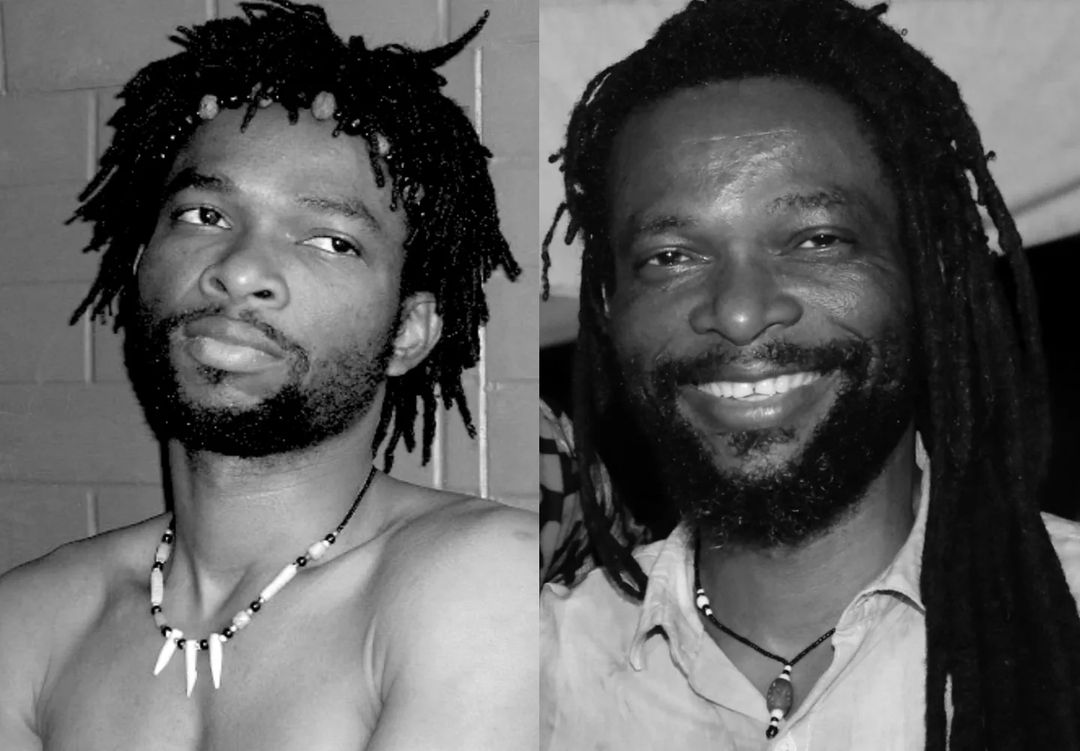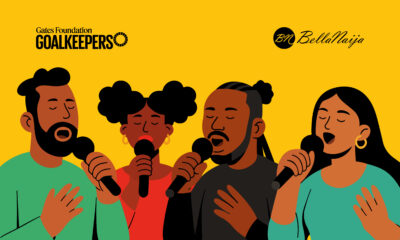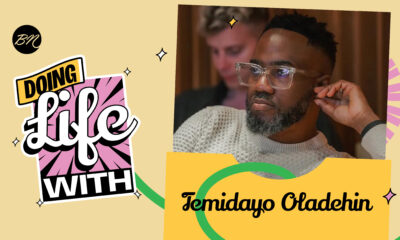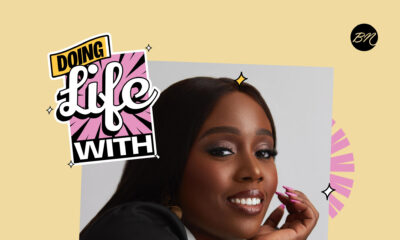Features
#BNCreativesCorner: Beautiful Nubia is A Musical Conduit of Native Wisdom
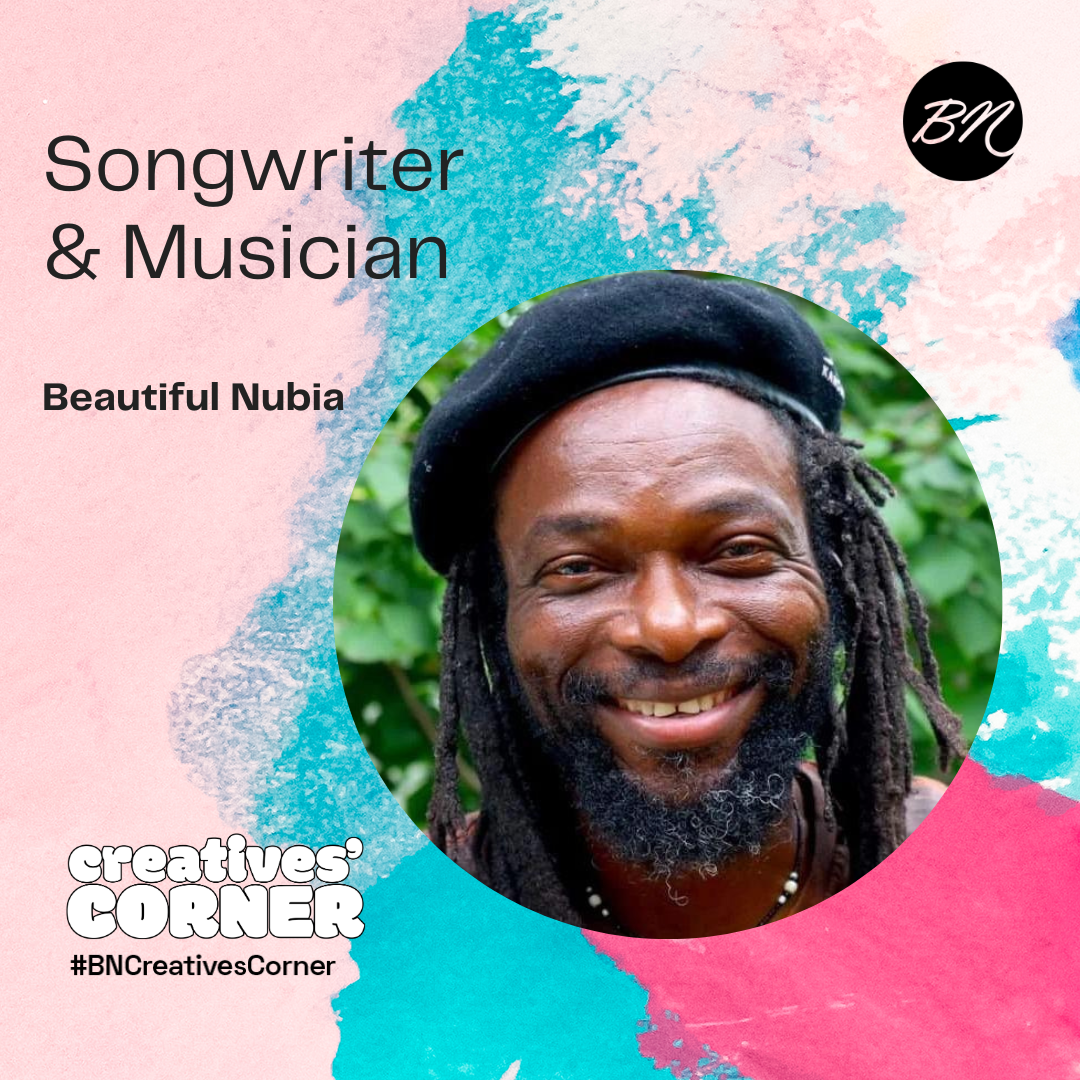
Before this interview, I had my headphone plugged into my ears, ‘Seven Lifes’ playing softly. I close my eyes soaking in the voice, the gángan, the rhythm and the melody. ‘This is storytelling at its finest,’ I mutter to no one in particular. I find myself humming, peace radiating through me, warmth at my fingertips.
Perhaps it is this same peace that descended on the day this song was written. In 1989, Beautiful Nubia was walking from his hall of residence at the University of Ibadan to the gate. He describes the evening as breezy and perfect, brown dry leaves floating in the air. “I was walking and this peace just descended and the song came. And it was ta da da, ta da da, ta da da da, ta da da. Beautiful melody, I thought and then the words came too. So I ran back to my room with my pen and started writing. I finished it in less than one hour.”
Beautiful Nubia says of Seven Lifes,
It is one of those songs that just come to you like that, like a gift from somewhere. Often when I write songs, I get a tune repeating in my head, and then I put words in there. Sometimes a few lines. But with Seven Lifes, everything came together at once. It’s a magical song. The lyrics are simple but also deep and complex.
Segun Akinlolu (Beautiful Nubia) was born at a time when storytelling abound. At the time when communities were a richer blend of the cultural, societal, and traditional, and when proverbs were truly the palm oil with which words were eaten. Those times when masquerades paraded streets in colourful attires, dancing to the songs of the gods. He appears for this interview in a blush shirt and a cap, long locs cascading past his shoulders, big brown beads around his neck and his glasses perched on the bridge of his nose. He looks good for a 55-year-old man and he truly looks like he’s lived many lives. So I tease, “Do you truly have seven lives?”
I think we all have as many as we want to have and that is why the title of the song is lifes, not lives. This basically says that it’s one life but in many manifestations. It’s like every time you think you have been grounded, you get up and still keep going. It’s talking about resilience, about being strong but not being stopped. Everything I talk about in my music is a mirror of me. Resilience, contentment, everything. I am as true as you can get.
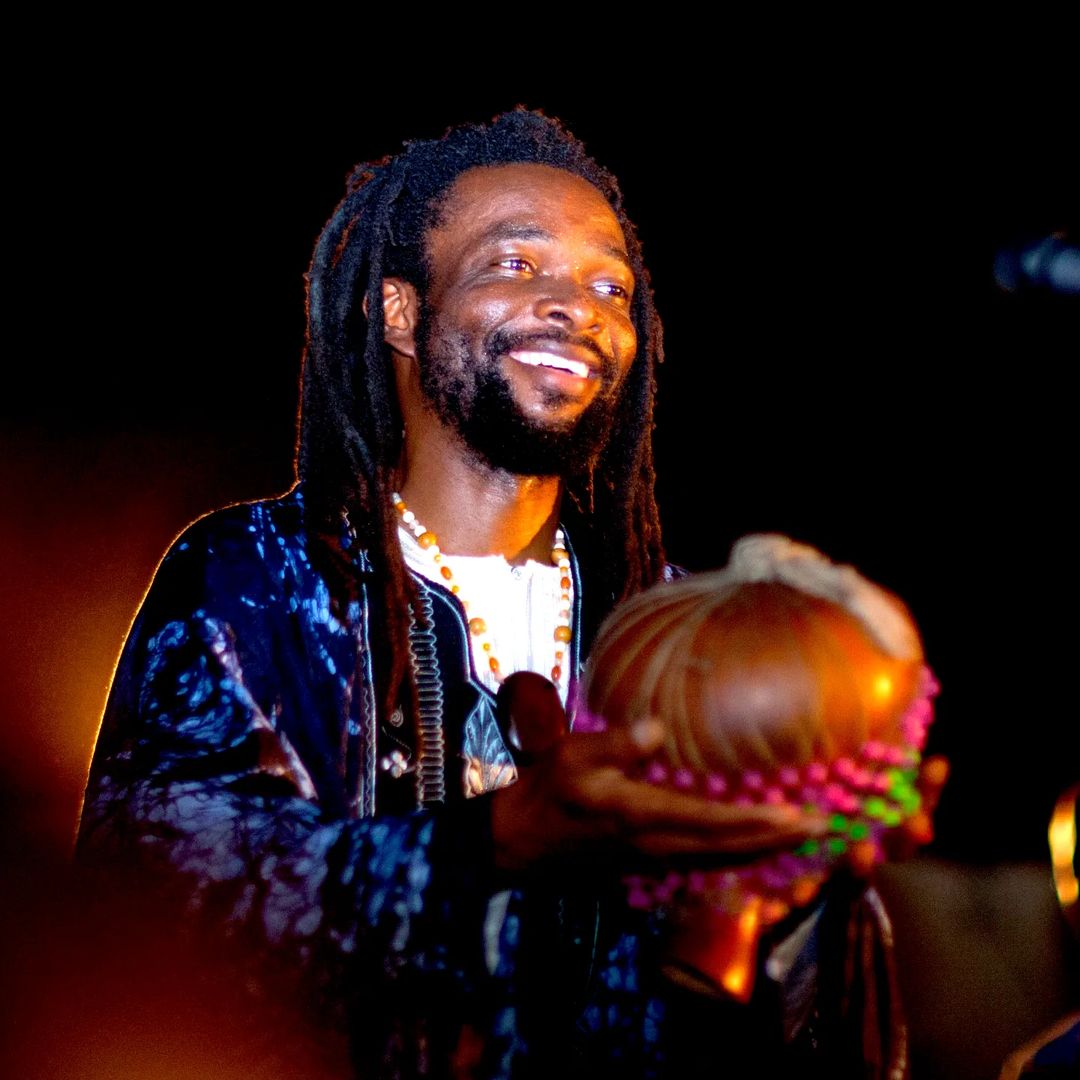
Born on the 11th of November, 1968, Beautiful Nubia grew up in Ibadan, studied Veterinary Medicine at the University of Ibadan and graduated in 1992. After 8 years of practising, he decided to go into music. Destiny called, and Segun answered.
I knew all along that I was going to become a musician. Even when I was working, all I wanted to do was to get paid so I could get to do my demo. And in all the years that I was working, I was saving for my eventual transition to music because I knew it was not going to be easy due to the kind of music that I do. People would say, if you know you’re going to become a musician, why did you study veterinary medicine? But everything is helping me now. I can now get to see the world in the artistic and scientific form and how everything comes together. A true artist must be able to stand out of the race. And that is when you can say words that guide and touch people. I became a full-time musician in 2000, although I had been recording albums before then.
One of my favourite memories is of my mother telling me historical stories under a large mango tree at night. Folklore, it is called. An average African child can relate to adults telling tales under the moonlight, children clustered on mats, mouth agape, paying full attention to stories like how Moremi Ajasoro offered her only child for the greater good of her people. The magic Beautiful Nubia creates is born of stories like this.
The first book I read was my grandmother; she was a huge library on her own. When you listen to the elders, you can learn a lot from them. They tell stories and poetry to express things.
When I was growing up, you see street dancers and drummers and it all just seep into your mind. So today, everything I’m doing is not divorced from all that. In actual fact, I thought of myself as a writer before a musician because I thought I was going to write and tell stories. And then when I started writing songs, it became a powerful gift. And the two kinda worked together.
I tell people that we write from what we have read. We sing from what we have heard. It’s the same kind of thing. When I was a teenager, I used to write manuscripts with my hand which I thought I was going to publish, with say, Macmillan. I never really got a chance. In university, one of my nicknames was editor because I was a student journalist and I edited a couple of magazines and journals, including scientific journals.
Stories make us who we are, Beautiful Nubia, agrees. He believes so strongly in the power of stories and words in inspiring black people, especially. That’s what he’s also doing with the name, Beautiful Nubia.
Some 3,000 years ago, the Nubians were the leaders of the world. Everything we can point to now, our modern civilisation, the way we organise our society, our democracy, and advancement in science and Meteorology all started from that era – from Nubia. When I read about it, I thought to myself, ‘Wow, so there was a point where people as dark as I am ruled the world.’
I use the name Beautiful Nubia to encourage young people. The narrative is usually that westerners are better or more intelligent, but there’s a huge contribution from people like us in all of this advancement and if no one gives us the credit, we can take pride in it ourselves.
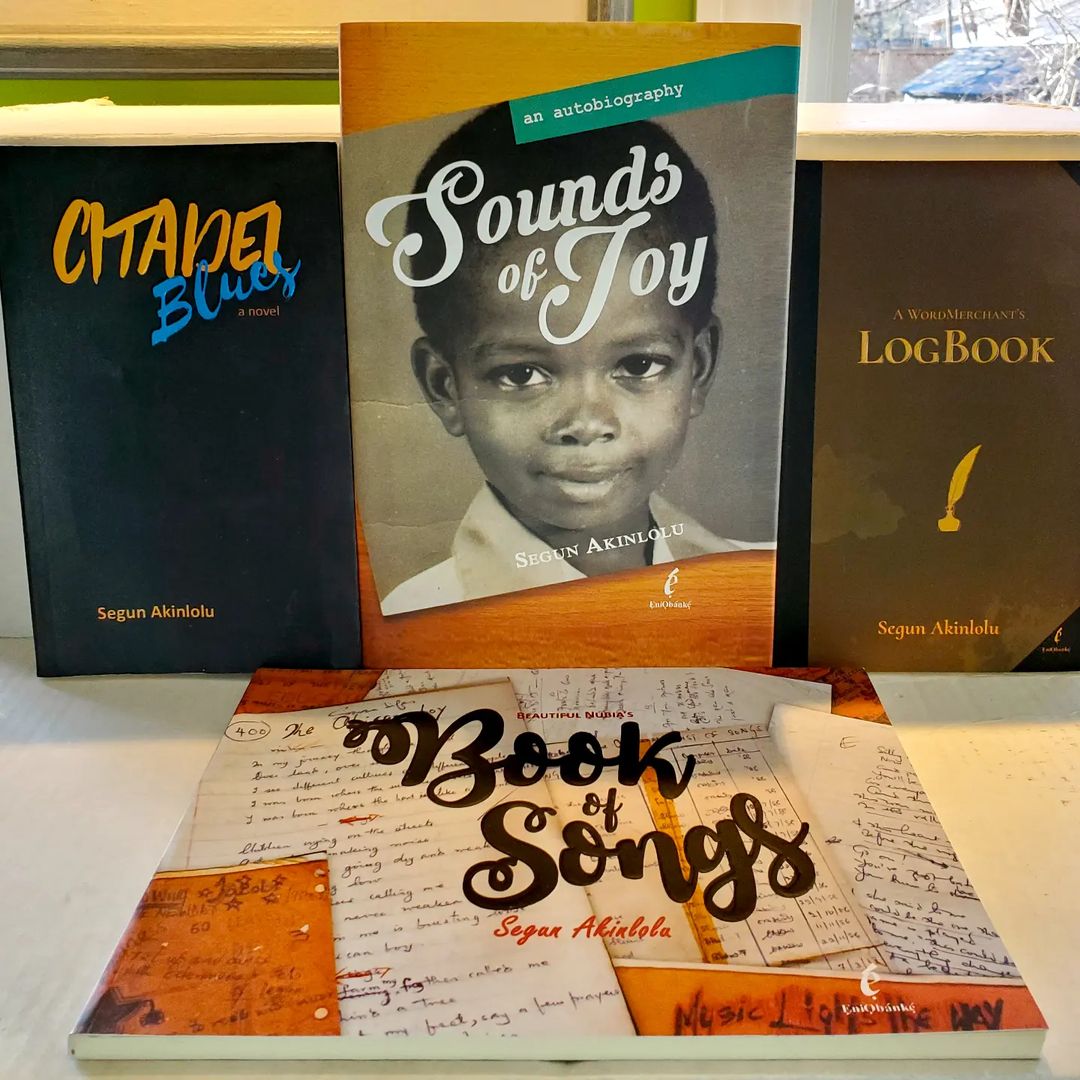
Books written by Beautiful Nubia
They say it takes a village to raise a child. It is true. Beautiful Nubia draws his inspiration from the multifacetedness of his home, community and societal influences. Culture, tradition, science, art, and literature – all interwoven to make him whole.
My mother is the first songwriter and playwright that I knew. At that age, I’m not sure I understood what being a playwright was but I remember sneaking into my mother’s room to steal a candy – she had a sweet tooth and stored a lot of them – and I found a folded book. A part was full of songs and the other a play. And I remember reading it and getting lost in it. I realised that I had heard them singing those songs at church. I thought, so my mother wrote those songs they sing at church?
My father too had a big influence. He had a music store. In the 60’s and 70’s in Ibadan, he was a very popular man when it came to music. In his store, he had music from every part of the world and I’d be there listening to them.
And, of course, my grandmother whom I described as being everything. Then, people used to approach to seek solutions on some issues and in the end, she always told them, ‘remember, life amounts to nothing.’ You could imagine a 7-year-old boy hearing this kind of thing. I learned that whatever you do, your purpose is to become a source of blessing to your society.
But none of them really knew I was going to become an artist because at that time, people were supposed to become doctors, lawyers and all. But my grandmother was not lettered with the western way. While she also wanted me to study, she didn’t stop from cultural explorations. And I think that’s where the seed was sown.
And it’s germinated. In 1998, Beautiful Nubia formed a backing group of young musicians to which he gave the name The Roots Renaissance Band. He founded the EniObanke Music Festival (EMUfest) in 2010, a multi-city annual festival of folk and roots music. In October 2016, he was conferred with the award of ‘Doctorate in Science (Honoris Causa) in Art’ by ESEP Le Berger University, Republic of Benin for his body of work and is often hailed as a prophet, philosopher-musician, and the king of melody.
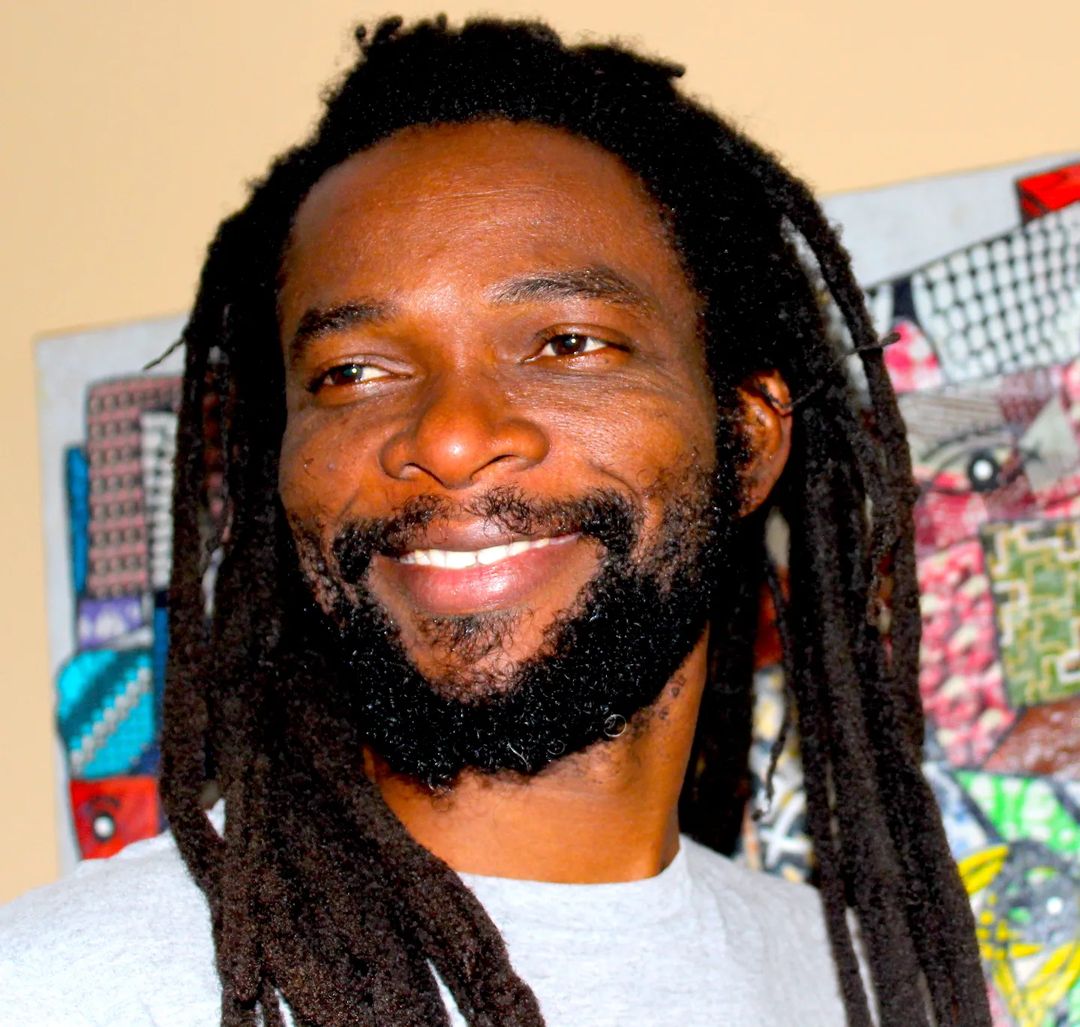
The culture of sitting under mango trees or on mats at night to listen to folklore may no longer be so common, but with about 3o albums released by him and his band, Beautiful Nubia has ensured his songs are built on rich folkloric traditions and native wisdom.
We have to store this information. Everything that we think has been lost, a generation will come looking for it and searching for their roots. And this is why I always tell people in the cultural industry: don’t be distracted or depressed by what’s going on. I understand everyone wants to make money but we should take it as being lucky we can do something that will be relevant to the generations to come. We should see it as something that would become a reference point in the future.
The need for money or praise has never been a motivating factor for Beautiful Nubia. “I think when you have a talent and you understand why you have been given that talent, you have to use it for the betterment of your people” – this, right here, is what gets him going.
I am not in music to make money or fame. As long as you’re not chasing after those things, you will not hear the noise of the market. You will just keep going. You will know where to go. The whole world makes way for the ones who know where they are going. I never lose focus, and I don’t listen to what’s trendy. We (he is talking of his band now) have a message to deliver, to play this music in a way it elevates our society. Our music is a tool of mass sensitisation. So our focus will never waver.
My goal is to use my music to create change in my environment. To make an individual listen to my music and become the best possible version of themselves. And in doing so, the individual can go out and influence society positively. Through my music, we can have communal development and revival.
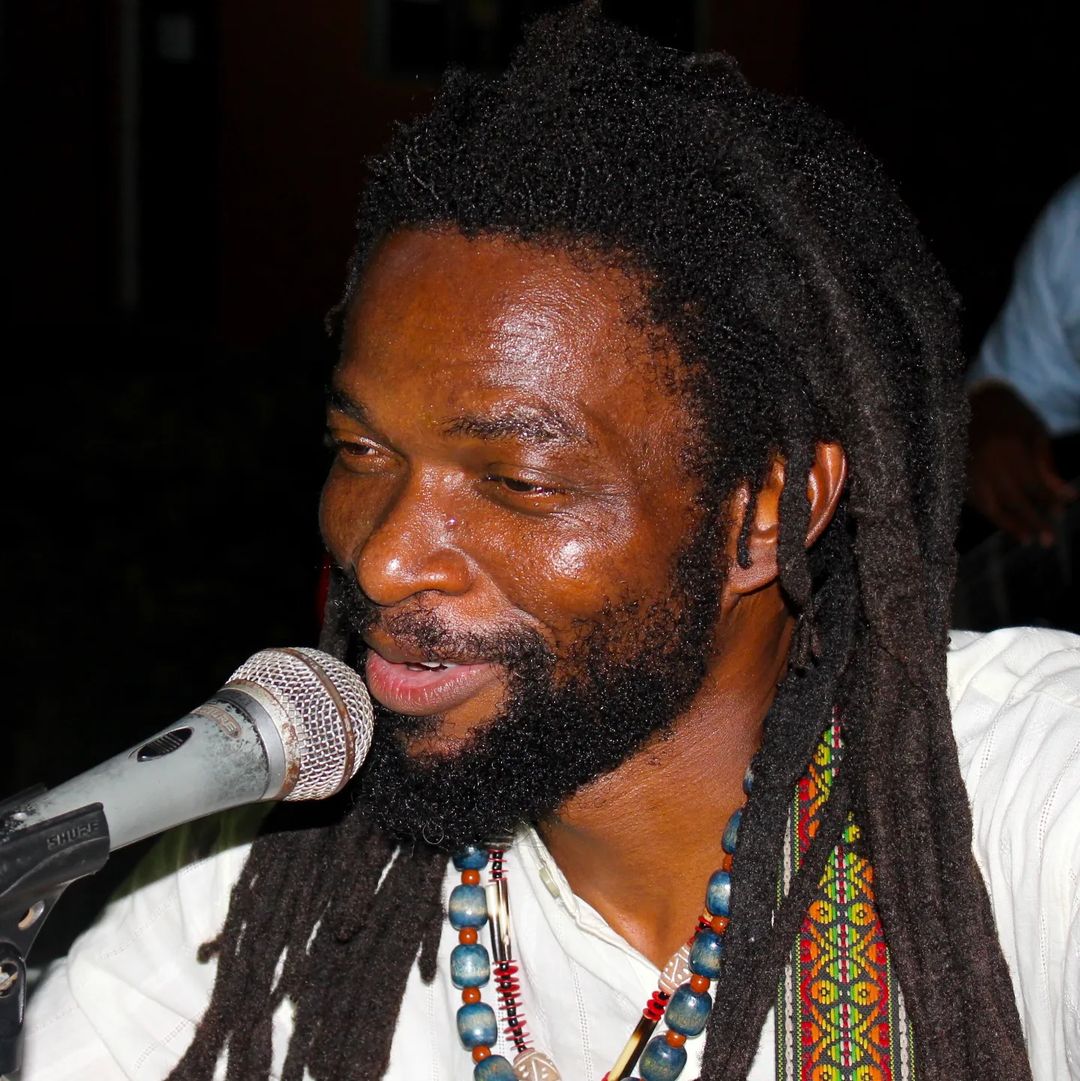
Beautiful Nubia believes there’s a channel through which songs come to him and thinks of himself as a conduit through which these songs reach the people. ‘It’s a gift that was given to me,’ he says, ‘and when those kinds of songs come, I am really humbled because I don’t know where they come from.’ Then there are those songs that take longer in the womb, incubating.
There are times a melody comes into my head and it stays there for years. Like ‘What a Feeling’.
I wrote the first verse in 1984, when I was 16 or 15. Then I added ‘oh what a feeling’ in 1994. In 1999, the other part ‘o ma ba e lo ni o ha, o ma ba e lo’ came to me, so I added it. The song took me a total of 15 years to write. Sometimes I write poems and turn them into songs.
There’s a gift for songwriting and there’s a gift for sound and I’ve developed myself to be able to arrange the music. 99% of everything you hear in my music is composed by me, even the agogo. The arrangement is tasking but it’s like putting pieces of puzzles together and that makes it interesting.
If, like me, you are fortunate to have a conversation with Beautiful Nubia, you’d notice, in the way he sits, talks and smiles, that he is a content man. He has everything and wants for nothing.
I think the main thing is that intentionality. You have to be like that stubborn fish that swims against the current. I conserve my energy for my goal. I know it can be hard for young people, but ultimately you can learn from my life. I am happy with my life. You know what you want to do even though people may not understand it. As long as you do that, you will be fine.
***
BN Creatives’ Corner is a series that gives creatives living and working in Africa the platform to showcase their work and talk about their journey, struggles and highlights of being creatives in Africa. Did you miss the previous episodes, read them here.
Many thanks to Beautiful Nubia for having this conversation with us and letting us share his story. You can visit beautifulnubia.com to see more of his works.

